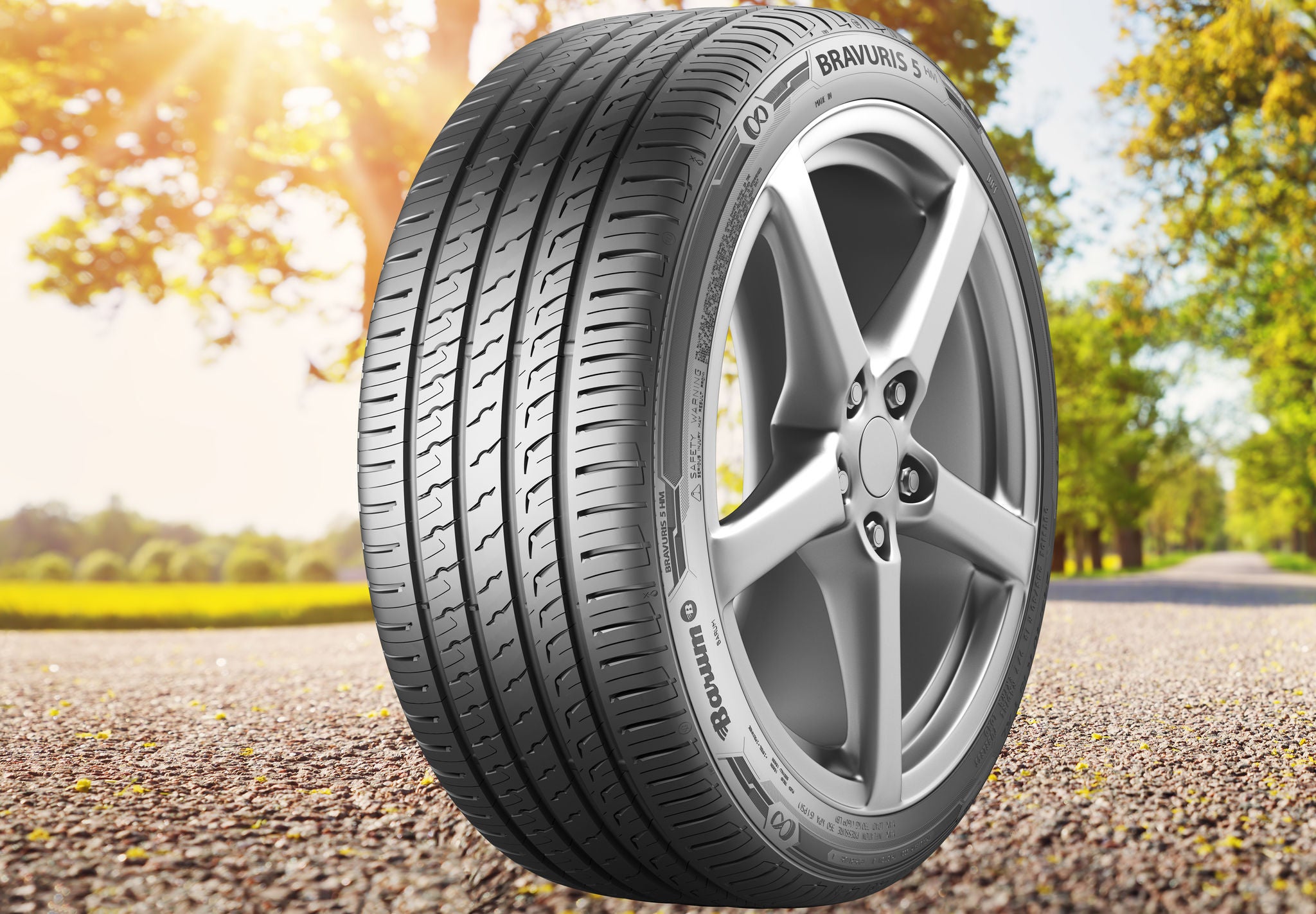
Summer tyres are part of the original equipment fitment of car manufacturers and are optimised for hot weather. So, it’s very likely that you own a set. But how do summer tyres work?
Like all tyre types, summer tyres are an ideal combination of design and compound. These things also make the difference between summer, all-season and winter tyres. But why should you use summer tyres?

When to use summer tyres
As a rule, summer tyres are sensible when the temperatures you’re driving in remain above 7 °C. If you already own winter tyres for the temperatures below 7 °C, then it is more sensible to buy summer tyres. A set of all-season tyres costs more than a set of summer tyres. There are also advantages, other than financial ones, to using summer tyres.
Summer tyres function and appearance
When you compare winter tyres vs summer tyres, you’ll note the difference in appearance. Summer tyres have much larger tread blocks and fewer sipes. This increases the amount of rubber that is in contact with the road. The result: better handling, braking stability and a shorter braking distance.
Another difference between winter and summer tyres is the tread depth. Summer tyres usually have a shallower tread depth compared to winter tyres. They do not need the same grip on the road as winter tyres would on snow. In turn, summer tyres are far more stable at higher speeds. This means they maintain their shape better and why summer tyres can run at a higher speed than winter tyres.
The main advantage of summer tyres is their optimised handling in both, wet and dry. This is partly due to the specially designed tyre tread bars. They offer you better grip length- and sideways, which is beneficial to minimising aquaplaning. Another advantage is the rubber compound.
What are summer tyres made of?
The compound of summer tyres maximises safety and driving comfort in warm months. Heat always softens tyre rubber compounds. Summer tyre compounds are harder than that other tyre types. They provide good handling in rising temperatures and on wet ground. But they should still remain soft enough to maintain driving comfort. For you, that means less tyre friction and better fuel efficiency.
Our Expert‘s Advice:

Only if you live in a country that’s always warmer than +7 °C. Any colder and summer tyres start to harden. They become brittle. Using them in wintry conditions is not safe and can actually damage them. We advise switching to either all-season or winter tyres – depending on the weather.
What are summer tyres’ advantages?
Due to their harder compound and their appearance, summer tyres offer great advantages in dry and wet weather:
- Increased agility and responsiveness thanks to more surface contact
- Better cornering and braking abilities due to a harder compound
- More fuel efficiency and less noise due to reduced rolling resistance

